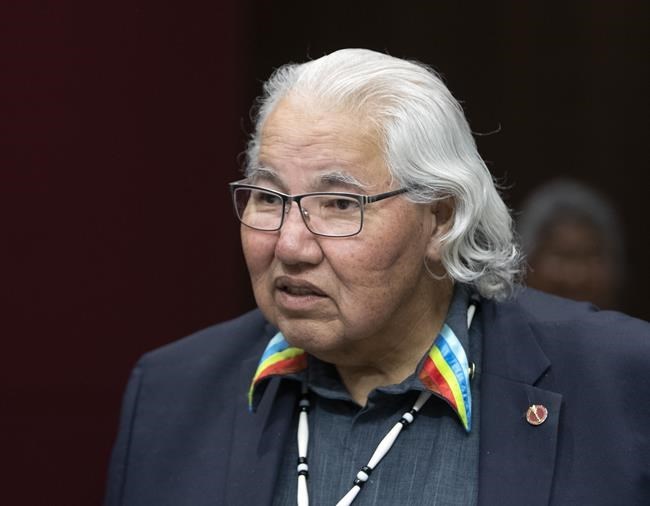
Senator Murray Sinclair appears before the Senate Committee on Aboriginal Peoples in Ottawa, Tuesday, May 28, 2019. Sinclair, the former head of the Truth and Reconciliation Commission, says Canadians should be prepared for the discovery of more bodies at other residential school sites across the country. THE CANADIAN PRESS/Fred Chartrand
June 01, 2021 - 8:53 PM
The former chairman of the Truth and Reconciliation Commission says Canadians should be prepared for the discovery of more children's remains at other residential school sites across the country.
Retired senator Murray Sinclair says the remains of children found at the residential school in Kamloops, B.C., last week mirror horrendous stories he heard from survivors of the school system.
He says survivors talked about children who suddenly went missing, including into mass burial sites.
Sinclair says when the commission asked if it could conduct a fuller inquiry to explore these stories, the request was denied.
He says the discovery in Kamloops, where a First Nation says the remains of 215 children were found, is evidence of the large number of children who died.
Sinclair says the survivors and intergenerational survivors need to understand that this information is important for all of Canada to appreciate the magnitude of the truth of this experience.
"Since the revelation of what has happened at Kamloops has come to light, I have been inundated with calls from survivors. Hundreds of calls, often just to cry," he said in a statement on Tuesday.
"I can hear not only the pain and the anguish, but also the anger that no one believed the stories they had told. I can also hear their sense that they have lost some hope that maybe those children that hadn’t returned might still be found. They now know that may not happen."
Sinclair says Canadians must persevere in the investigation into what happened at the schools and ensure that healing programs are in place to help survivors to gather and share their memories and stories.
The Truth and Reconciliation Commission operated between 2008 and 2015 and provided Indigenous people directly or indirectly affected by the residential school system with an opportunity to share their stories and experiences.
This report by The Canadian Press was first published June 1, 2021
News from © The Canadian Press, 2021